War crimes investigations and politics
Thursday, 06.01.2011.
13:37

War crimes investigations and politics He told B92 that he used to think that politics could not influence criminal proceedings but that he was convinced otherwise during his career. Below is the transcript of the interview Vukcevic gave to B92's Nikola Radisic B92: Hello and welcome to B92. Let me first wish you all the best in 2011. Vukcevic: Thank you. B92: Are you satisfied with the year behind us? Vukcevic: I am relatively satisfied. It is hard to single out anything but I’d like to single out the report of Dick Marty, because the report recognizes our three-year long work regarding the organ trafficking. We are still working on it, but I think that the report brought a satisfaction that we were right when we claimed that it had happened. When we first released it, after the initial statement of Mrs. Carla Del Ponte, i.e. allegations in her book, many people thought that it was something completely morbid and impossible. So I see this as a great success. Of course, there are also two big cases. The trial has begun in the Cuska case and I wouldn’t elaborate much on it. There is also the Gnjilane Group case. Generally speaking, I am satisfied with our work. B92: You mentioned Hashim Thaci and the whole story about organ trafficking in Kosovo. Can you say from this point of view that the Serbian prosecution is capable and can deal with this case and to completely investigate it? Vukcevic: I did not mention Hashim Thaci. Dick Marty mentioned Hashim Thaci. I can say that our investigations haven’t exactly got to Hashim Thaci. Dick Marty got to him. We got to a certain level, but he went in the direction of Hashim Thaci. B92: And your information was not linking him (Hashim Thaci) to this? Vukcevic: We did not get that far, we got to (Ramush) Haradinaj. We knew there was someone above him, but I cannot brag that we got to Thaci, Dick Marty got to him. B92: To what extent is Haradinaj involved in all this exactly? Vukcevic: There is evidence that he was also involved. But as far as Hashim Thaci is concerned, Mr. Dick Marty revealed it. B92: Let us go back. Do you think that the Serbian prosecution is capable of investigating these crimes and raising indictments before the domestic court? Vukcevic: There is not a single case that the Serbian prosecution and courts are not capable of conducting at the highest legal standards. Therefore, we are capable of processing this case as well as other cases. B92: What’s the cooperation with the Hague Tribunal, EULEX like? Are you worried about obstructions on the part of the Kosovo authorities, for example? How do you plan going about that? Vukcevic: We’ll see how we are going to do that. I just want to remind you about our first attempt. In the very beginning I tried and went to Tirana in order to try and work on this together with the Albanian prosecution. However, they refused. We are now going to wait for January 25, when a decision, i.e. a resolution will be adopted by the Council of Europe and we will decide what to do after that. But there is no chance that there will be success without regional cooperation, meaning cooperation between the Serbian prosecution, EULEX and the Albanian prosecution. B92: Both the EU and the U.S. insist that Hashim Thaci be one of the main negotiators. Are you worried that politics could interfere with the entire case and possibly halt the process if the investigation in the end leads to him? Vukcevic: It’s hard for me to talk about that. I used to think that politics could not interfere with criminal proceedings to that extent, but now I’m convinced that it can. Therefore, I don’t know. We’ll see. B92: But we have already had negative experiences with this. Vukcevic: Yes, but I think that it is hard for any political power or any country to stand behind a man if we have serious evidence that he took part in something like this. B92: Aside from being the war crimes prosecutor you are also a member of the National Council for Cooperation with the Hague Tribunal. How far has the search for the fugitives progressed? There were two search operations for Goran Hadzic covered by the media in early and late December. What is happening there? Vukcevic: Those were all routine things aimed at gathering evidence and discovering leads reagrding the Hague fugitives’ hiding. It was interesting that many paintings were discovered in a house of a man whose house was searched yesterday (on Monday), by the way the man is a craftsman, and a photograph of a Modigliani painting. As far as I know, the painting was insured to EUR 15mn which means that its value is even higher. It’s interesting that you find such art values with people who I doubt even know who Modigliani was. We know that there was an attempt to take it out of the country. We think that the further hiding of Hague indictee Goran Hadzic would be financed with its sale. B92: Are there any indications that Goran Hadzic is in Serbia? Vukcevic: It’s hard for me to answer that question. B92: I suppose that you have the same answer to the question about Ratko Mladic? Vukcevic: Even harder. B92: You said that there has been obstruction of regarding the search for Ratko Mladic. If I’m not mistaken, you directly pointed the finger at former Head of the Serbian State Security (DB) Rade Bulatovic. I quote “he did not do his best” , as far as the search was concerned. Are you perhaps ready to make this information concrete - who obstructed and in what way? Vukcevic: I’m not exactly ready to say anything about that today, but my opinion is that there have been obstructions, because I think that the work of the action team, after certain changes, is significantly better than it used to be. The work has intensified and it is on a higher, better quality level with the departure of Rade Bulatovic and the arrival of the new head of the Security-Information Agency (BIA). B92: Similar information - that it was known in 2008 that he was near Valjevo - was published by WikiLeaks. Is this information reliable and correct? Vukcevic: It’s not reliable. I have already stated that as far as WikiLeaks is concerned I believe that those are subjective assessments of diplomats, I stress that they are subjective and very superficial, at least those that I had the opportunity to see and what I was able to assess. B92: What awaits us in 2011 as far as your work is concerned? Vukcevic: You know, when I started this work with the War Crimes Prosecution I thought that it was all going to be finished in four years. Now I see that it won’t be finished in the next four years. Therefore, we are facing further battle, work on the cases and that’s it. B92: Are you optimistic that journalists will not be asking you again where Ratko Mladic is in a year's time? Vukcevic: I am optimistic. B92: Thank you very much. Vukcevic: You are welcome. Vladimir Vukcevic (FoNet, file) War Crimes Prosecutor Vladimir Vukcevic says that there is concern that political pressures could jeopardize the Kosovo human organ trafficking investigation. Guest: Vladimir Vukcevic War Crimes Prosecutor Vladimir Vukcevic says that there is concern that political pressures could jeopardize the Kosovo human organ trafficking investigation
War crimes investigations and politics
He told B92 that he used to think that politics could not influence criminal proceedings but that he was convinced otherwise during his career.Below is the transcript of the interview Vukčević gave to B92's Nikola Radišić
B92: Hello and welcome to B92. Let me first wish you all the best in 2011.
Vukčević: Thank you.
B92: Are you satisfied with the year behind us?
Vukčević: I am relatively satisfied. It is hard to single out anything but I’d like to single out the report of Dick Marty, because the report recognizes our three-year long work regarding the organ trafficking. We are still working on it, but I think that the report brought a satisfaction that we were right when we claimed that it had happened. When we first released it, after the initial statement of Mrs. Carla Del Ponte, i.e. allegations in her book, many people thought that it was something completely morbid and impossible. So I see this as a great success. Of course, there are also two big cases. The trial has begun in the Ćuška case and I wouldn’t elaborate much on it. There is also the Gnjilane Group case. Generally speaking, I am satisfied with our work.
B92: You mentioned Hashim Thaci and the whole story about organ trafficking in Kosovo. Can you say from this point of view that the Serbian prosecution is capable and can deal with this case and to completely investigate it?
Vukčević: I did not mention Hashim Thaci. Dick Marty mentioned Hashim Thaci. I can say that our investigations haven’t exactly got to Hashim Thaci. Dick Marty got to him. We got to a certain level, but he went in the direction of Hashim Thaci.
B92: And your information was not linking him (Hashim Thaci) to this?
Vukčević: We did not get that far, we got to (Ramush) Haradinaj. We knew there was someone above him, but I cannot brag that we got to Thaci, Dick Marty got to him.
B92: To what extent is Haradinaj involved in all this exactly?
Vukčević: There is evidence that he was also involved. But as far as Hashim Thaci is concerned, Mr. Dick Marty revealed it.
B92: Let us go back. Do you think that the Serbian prosecution is capable of investigating these crimes and raising indictments before the domestic court?
Vukčević: There is not a single case that the Serbian prosecution and courts are not capable of conducting at the highest legal standards. Therefore, we are capable of processing this case as well as other cases.
B92: What’s the cooperation with the Hague Tribunal, EULEX like? Are you worried about obstructions on the part of the Kosovo authorities, for example? How do you plan going about that?
Vukčević: We’ll see how we are going to do that. I just want to remind you about our first attempt. In the very beginning I tried and went to Tirana in order to try and work on this together with the Albanian prosecution. However, they refused. We are now going to wait for January 25, when a decision, i.e. a resolution will be adopted by the Council of Europe and we will decide what to do after that. But there is no chance that there will be success without regional cooperation, meaning cooperation between the Serbian prosecution, EULEX and the Albanian prosecution.
B92: Both the EU and the U.S. insist that Hashim Thaci be one of the main negotiators. Are you worried that politics could interfere with the entire case and possibly halt the process if the investigation in the end leads to him?
Vukčević: It’s hard for me to talk about that. I used to think that politics could not interfere with criminal proceedings to that extent, but now I’m convinced that it can. Therefore, I don’t know. We’ll see.
B92: But we have already had negative experiences with this.
Vukčević: Yes, but I think that it is hard for any political power or any country to stand behind a man if we have serious evidence that he took part in something like this.
B92: Aside from being the war crimes prosecutor you are also a member of the National Council for Cooperation with the Hague Tribunal. How far has the search for the fugitives progressed? There were two search operations for Goran Hadžić covered by the media in early and late December. What is happening there?
Vukčević: Those were all routine things aimed at gathering evidence and discovering leads reagrding the Hague fugitives’ hiding. It was interesting that many paintings were discovered in a house of a man whose house was searched yesterday (on Monday), by the way the man is a craftsman, and a photograph of a Modigliani painting. As far as I know, the painting was insured to EUR 15mn which means that its value is even higher. It’s interesting that you find such art values with people who I doubt even know who Modigliani was. We know that there was an attempt to take it out of the country. We think that the further hiding of Hague indictee Goran Hadžić would be financed with its sale.
B92: Are there any indications that Goran Hadžić is in Serbia?
Vukčević: It’s hard for me to answer that question.
B92: I suppose that you have the same answer to the question about Ratko Mladić?
Vukčević: Even harder.
B92: You said that there has been obstruction of regarding the search for Ratko Mladić. If I’m not mistaken, you directly pointed the finger at former Head of the Serbian State Security (DB) Rade Bulatović. I quote “he did not do his best” , as far as the search was concerned. Are you perhaps ready to make this information concrete - who obstructed and in what way?
Vukčević: I’m not exactly ready to say anything about that today, but my opinion is that there have been obstructions, because I think that the work of the action team, after certain changes, is significantly better than it used to be. The work has intensified and it is on a higher, better quality level with the departure of Rade Bulatović and the arrival of the new head of the Security-Information Agency (BIA).
B92: Similar information - that it was known in 2008 that he was near Valjevo - was published by WikiLeaks. Is this information reliable and correct?
Vukčević: It’s not reliable. I have already stated that as far as WikiLeaks is concerned I believe that those are subjective assessments of diplomats, I stress that they are subjective and very superficial, at least those that I had the opportunity to see and what I was able to assess.
B92: What awaits us in 2011 as far as your work is concerned?
Vukčević: You know, when I started this work with the War Crimes Prosecution I thought that it was all going to be finished in four years. Now I see that it won’t be finished in the next four years. Therefore, we are facing further battle, work on the cases and that’s it.
B92: Are you optimistic that journalists will not be asking you again where Ratko Mladić is in a year's time?
Vukčević: I am optimistic.
B92: Thank you very much.
Vukčević: You are welcome.










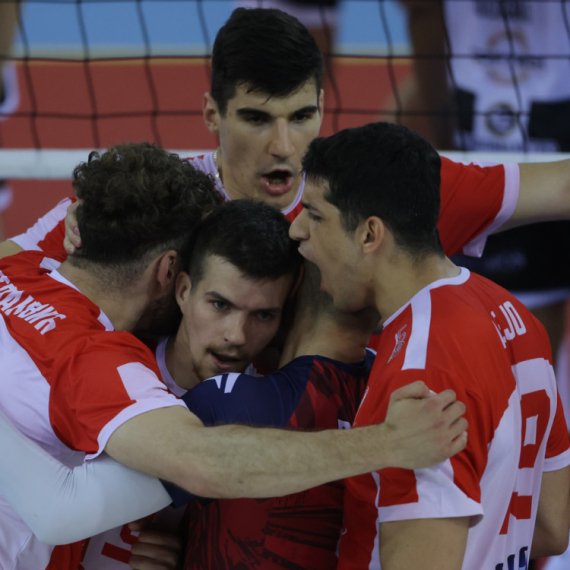
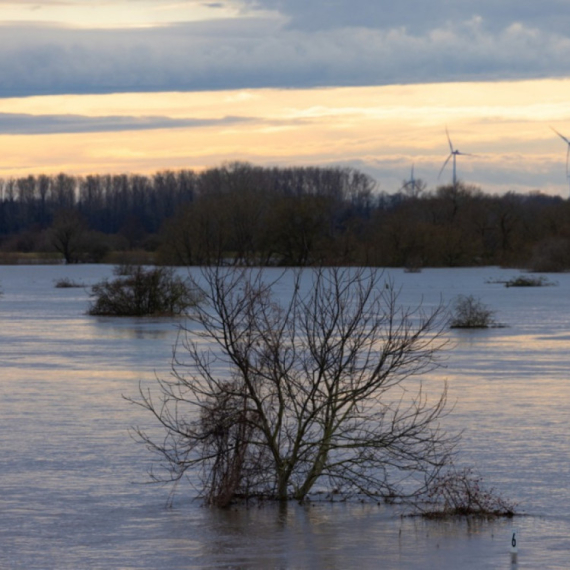
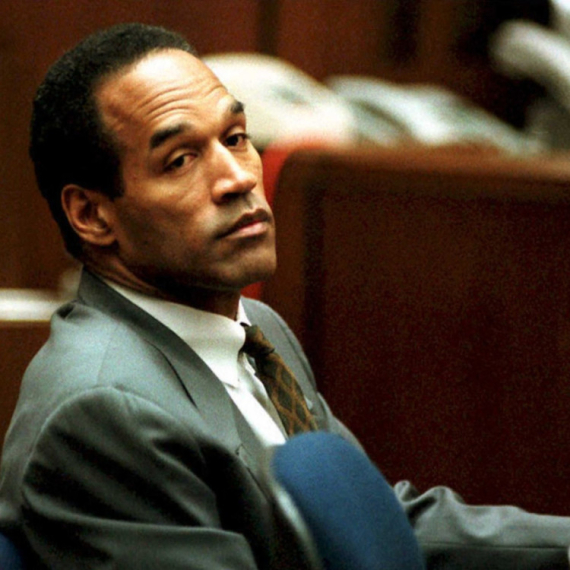
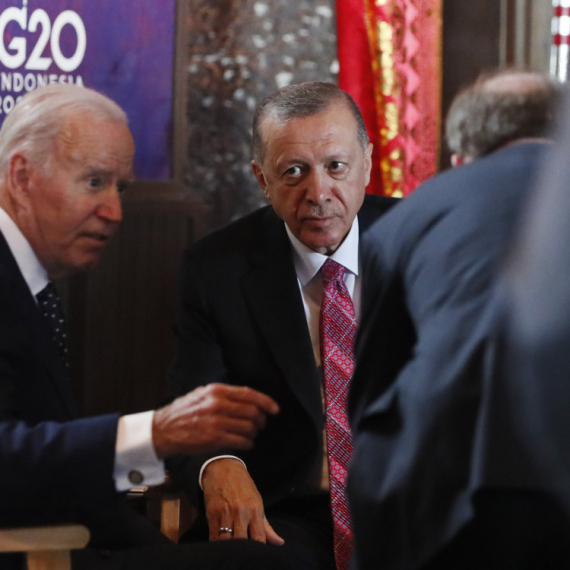
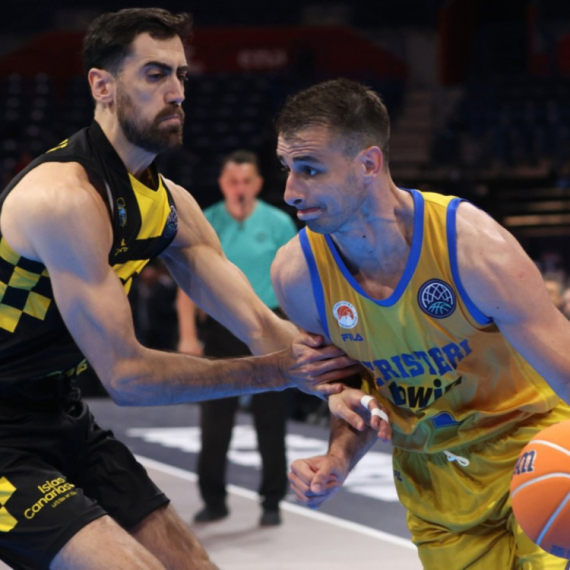
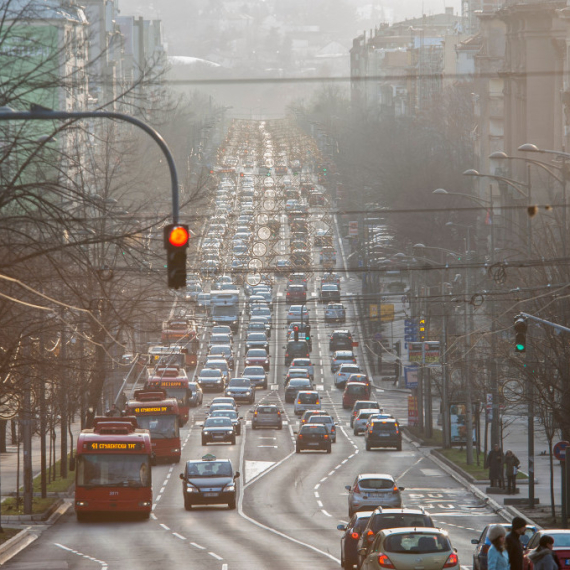
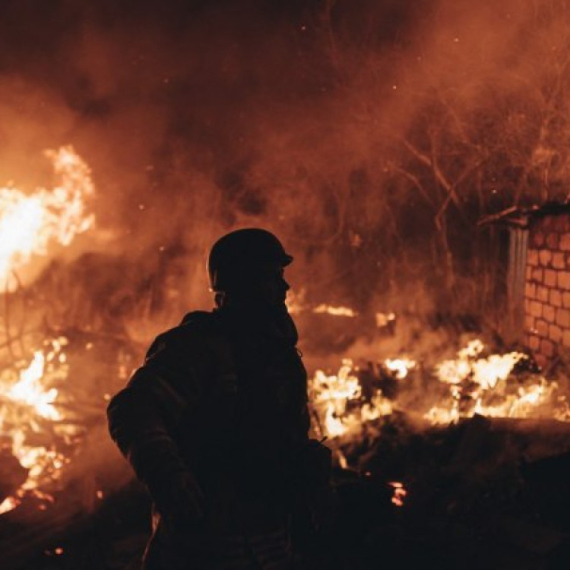
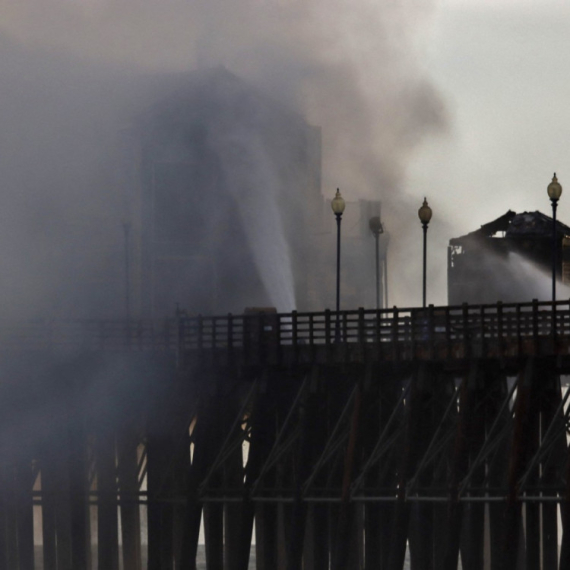

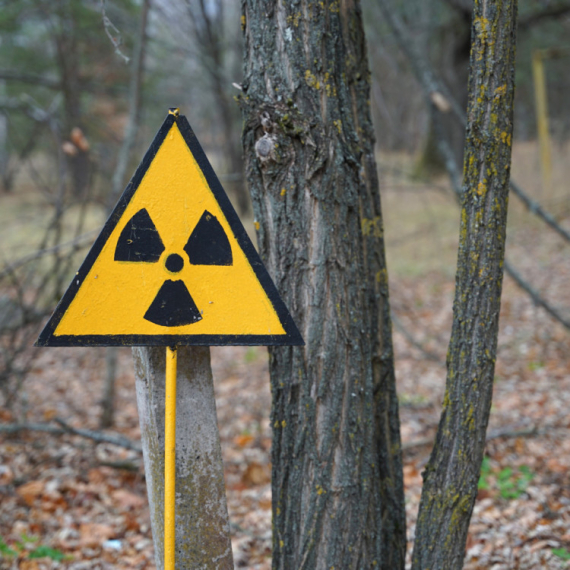
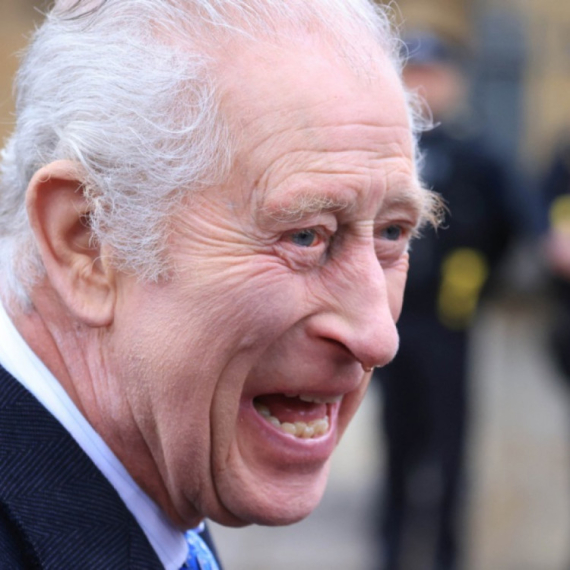
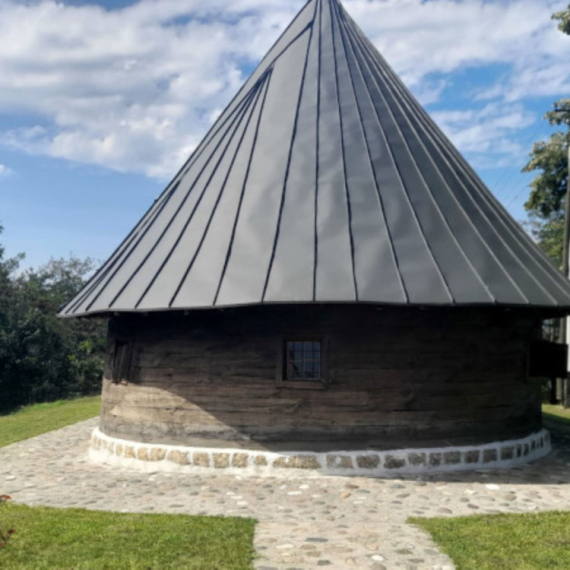




































Komentari 1
Pogledaj komentare